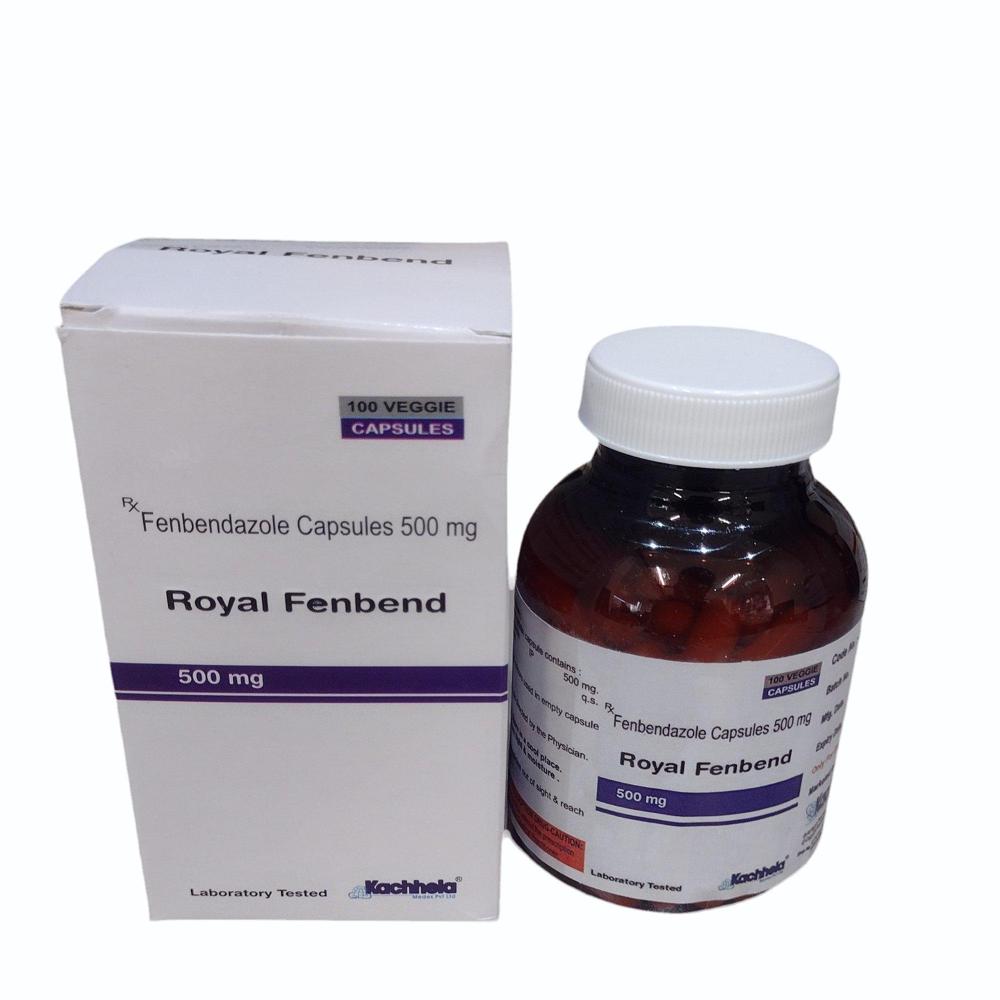fenbendazole capsules: Future Research and Potential Applications
Understanding the Conveniences and Uses of Fenbendazole in Vet Medication
Fenbendazole has actually developed itself as an essential anthelmintic in vet medication. Its capability to target various parasitical infections makes it a beneficial tool for vets. The medicine's device disrupts important cellular processes in parasites, bring about effective therapy results. However, its safety account differs in between varieties, demanding careful factor to consider in its usage. Recognizing these dynamics can lose light on fenbendazole's more comprehensive implications in vet treatment and ongoing research study right into its prospective beyond standard applications
System of Activity of Fenbendazole

Usual Parasitical Infections Dealt With With Fenbendazole
A range of parasitic infections are successfully treated with fenbendazole, making it a versatile option in vet medicine. This anthelmintic agent is especially reliable versus nematodes, consisting of roundworms and hookworms, which frequently influence canines and cats. It is likewise used for the treatment of cestodes, such as tapeworms, providing a broad range of action versus both kinds of digestive parasites. Furthermore, fenbendazole is beneficial in managing infections created by protozoa, especially Giardia, which can lead to intestinal distress in animals. Its effectiveness prolongs to treating specific lungworms in canines and felines, attending to respiratory wellness problems linked to these parasites. In general, fenbendazole's capacity to target numerous parasitical varieties makes it a valuable device in veterinary technique, making certain the health and wellness and health of pet dogs impacted by these typical infections.
Security and Effectiveness in Various Pet Types
The security and efficiency of fenbendazole differ among various animal varieties, underscoring the relevance of species-specific factors to consider in veterinary medication. In dogs, fenbendazole is normally well-tolerated and efficient versus a variety of intestinal parasites, consisting of roundworms and hookworms. For felines, however, its usage is less common and may need cautious application due to possible damaging reactions.
In livestock, such as cattle and sheep, fenbendazole shows effectiveness against numerous endoparasites, adding to enhanced health and wellness and performance. Nonetheless, the pharmacokinetics and possible side results can differ substantially in between species, requiring cautious examination by veterinarians.
Horses also react positively to fenbendazole, especially for dealing with strongyles and ascarids, though dosage and administration paths must be customized to their unique physiology. Subsequently, comprehending these distinctions is vital for optimizing therapy results and guaranteeing pet well-being across varied species.
Management and Dose Guidelines
Proper administration and dose standards are essential for making the most of the restorative impacts of fenbendazole while minimizing prospective adverse effects. The dosage generally differs depending on the varieties being treated, the particular condition, and the formulation of fenbendazole used. fenbendazole capsules. For pet dogs and pet cats, an usual dosage is 50 mg/kg body weight, administered daily for three consecutive days, but vets may change this based on private health and wellness evaluations
It is essential to provide fenbendazole with food to enhance absorption and decrease stomach trouble. The drug is readily available in different forms, including granules and paste, enabling adaptable administration options. Keeping track of the animal's feedback during and after treatment is recommended to confirm effectiveness and security. Furthermore, veterinary guidance is essential to establish the proper duration of therapy based upon the kind of parasitical infection being resolved, ensuring ideal results for the animal's wellness.
Future Viewpoints and Study on Fenbendazole
Study on fenbendazole remains to progress, focusing on its potential applications past standard antiparasitic usages. Recent studies have explored its efficiency in dealing with numerous forms of cancer cells, particularly in veterinary oncology. Preliminary go to website data recommend that fenbendazole might inhibit the development of tumor cells and improve the impacts of other chemotherapeutic agents.
Additionally, scientists are examining its role in taking care of intestinal problems in pets, highlighting its anti-inflammatory buildings. The versatility of fenbendazole for various species elevates concerns about its safety profiles and perfect application routines in diverse populations.
As interest expands, there is a requirement for detailed scientific trials to establish evidence-based guidelines for these unique applications. Future research may likewise check out the systems behind fenbendazole's impacts, possibly paving the way for innovative restorative approaches in veterinary medication. The ongoing expedition of fenbendazole could significantly enhance therapy choices for different vet conditions.

Frequently Asked Inquiries
Is Fenbendazole Safe for Pregnant Animals?
The security of fenbendazole for expecting pets continues to be unsure. While some researches suggest very little danger, vets usually suggest care and frequently discourage its usage while pregnant unless the advantages plainly surpass possible risks.
Can Fenbendazole Be Utilized in Animals?
Fenbendazole is frequently utilized in animals to treat numerous parasitical infections. 222 mg. Its effectiveness against stomach worms makes it a beneficial anthelmintic, adding to enhanced wellness and performance in pets raised for food and fiber
What Are the Negative Effects of Fenbendazole?

The side impacts of fenbendazole might consist of gastrointestinal disturbances, sleepiness, and allergic responses. In unusual instances, extra extreme reactions could occur, demanding mindful surveillance and examination with a vet throughout therapy.
Just How Does Fenbendazole Contrast to Other Dewormers?
Fenbendazole offers broad-spectrum efficiency versus various bloodsuckers, usually comparing positively to other dewormers. Its distinct device targets different life phases, making it efficient, while generally presenting a favorable safety account contrasted to options available on the marketplace.
Can Fenbendazole Be Used for Treating Cancer Cells in Animals?
The possibility of fenbendazole in dealing with cancer in pets has amassed passion. Initial researches suggest it might inhibit cancer cells cell growth, however additionally study is needed to validate its effectiveness and safety blog and security their explanation in vet oncology.